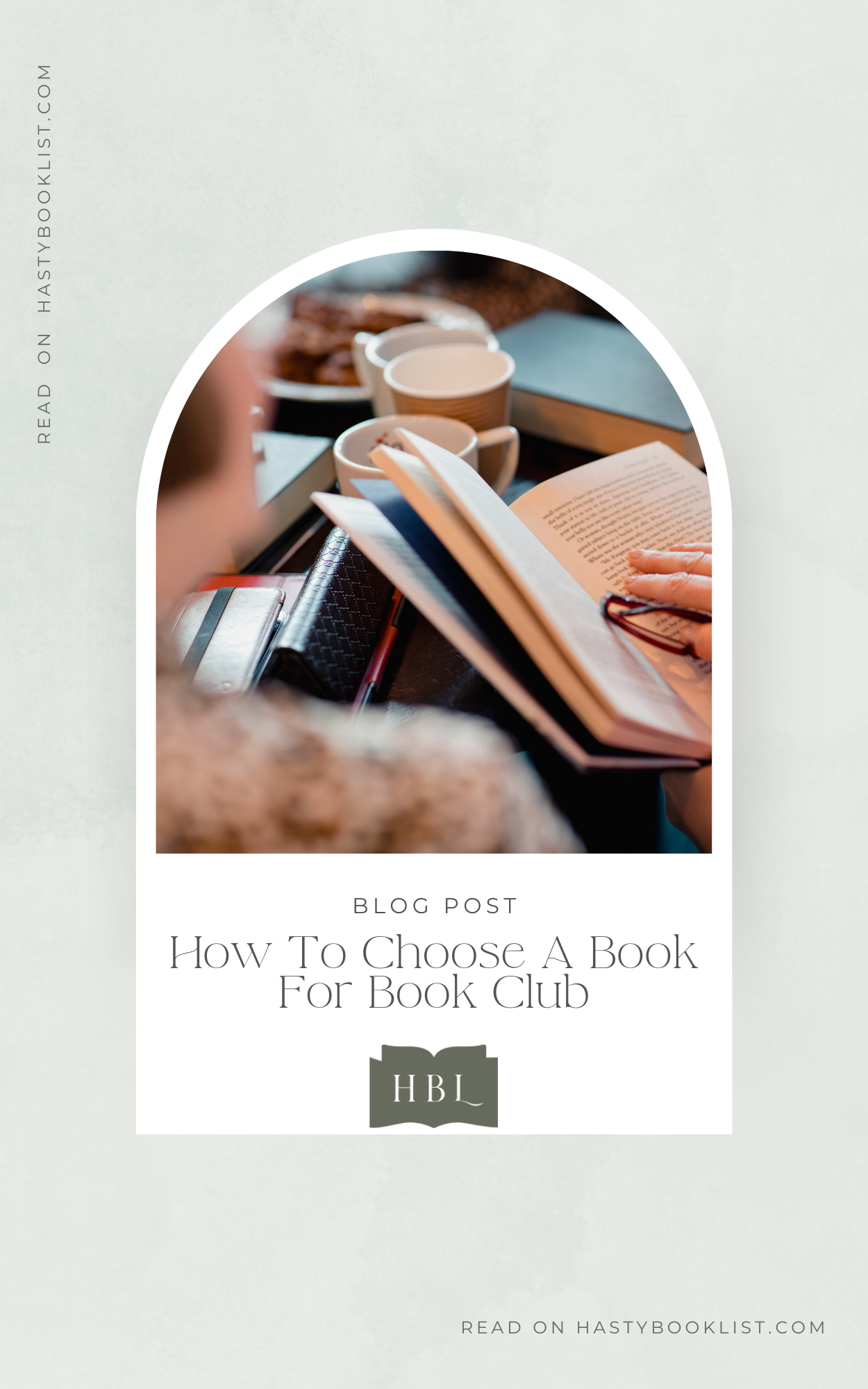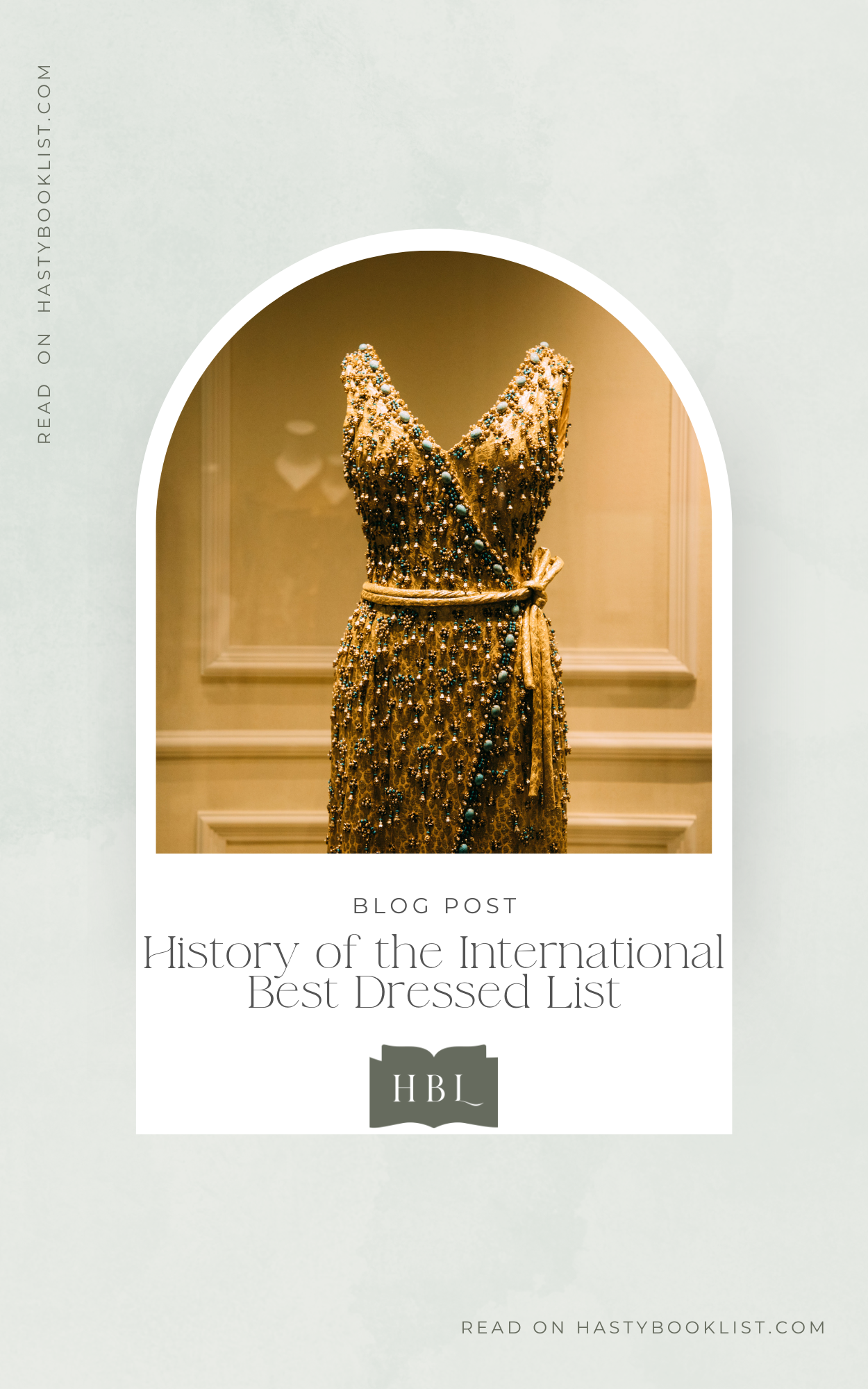How To Choose A Book For Book Club
Book clubs are wonderful gatherings of book lovers who come together to discuss literature, share their thoughts, and connect over a shared love of reading. They can be informal groups of friends, official clubs at libraries or bookstores, or even virtual communities spread across different cities or countries. Book clubs provide a structured way to read more regularly, expose members to new genres, and offer a platform for discussing ideas that may resonate with or challenge one’s perspective. The power of a book club lies in the rich conversations that emerge—whether members agree on the story or interpret it in unique ways, the discussions always lead to new insights.
A great benefit of book clubs is the chance to meet new people who share a common interest. For many, a book club is a way to make friends in a new city, connect with neighbors, or build deeper relationships with co-workers. The conversation starters come built-in through the book, creating a comfortable environment for even the quietest members to open up. Different perspectives enhance each reading experience, as members often point out elements that others may have missed, and lively debates are part of the fun.
One of the challenges, however, is picking a book to read as a group. With so many incredible options, it can feel daunting to select a title that will resonate with everyone. Some clubs use a rotating system where each member gets a turn to choose, while others rely on a vote. Balancing different tastes can be tricky: some members might prefer historical fiction or mysteries, while others are drawn to self-help, non-fiction, or the latest literary hits. Often, the key is finding books that provoke good discussions—those with themes, characters, or plot twists that inspire conversation, even if the group doesn’t universally love the book.
At their best, book clubs are more than just gatherings to discuss literature—they’re a space to learn about ourselves and each other, to grow in empathy and understanding, and to share in the joys and challenges of reading together.
Today I am sharing a guide on how to choose a book that the other book club members would love to read and discuss.
How To Choose A Book For Book Club
Selecting the right book for a book club can make all the difference in fostering lively discussions and engaging everyone in the group. Here are some tips to help your group decide:
1. Choose Books That Are Widely Available
Why: To ensure that all members can access the book without difficulty, look for titles available in multiple formats (hardcover, paperback, audiobook, and e-book) and at various price points. Opting for books that can be found at libraries or have been recently published also makes them more accessible.
Considerations: Popular bestsellers, classics, or books available through library e-lending services (like OverDrive or Libby) are often easy to source. If your group has members who prefer audiobooks, check that the chosen title has an audio version.
2. Pick Books with Substance for Discussion
Why: Books with layered themes, complex characters, or moral dilemmas tend to spark the best conversations. Stories that address universal issues—love, loss, identity, ethics—encourage group members to share personal interpretations and experiences.
Considerations: Look for books with themes or conflicts that are open to interpretation, such as novels that explore gray areas in ethics or society. Books by authors like Jodi Picoult or Tayari Jones often provoke thoughtful discussion and can lead to debates that go beyond the story.
3. Vary the Genres to Keep Things Fresh
Why: Reading a variety of genres helps keep meetings interesting and allows members to step out of their comfort zones. Alternating between fiction, memoirs, historical novels, mysteries, and even the occasional non-fiction title can enrich the reading experience.
Considerations: Keep track of past selections and try to switch up genres each month. If your club has read several heavy novels in a row, consider something lighter, like a comedic memoir or a feel-good novel, to balance the mood.
4. Aim for Books with Relatable or Compelling Characters
Why: Characters that feel real and complex help readers connect with the story on an emotional level. When book club members can empathize with or relate to a character’s journey, it opens up personal storytelling and empathy-driven discussions.
Considerations: Books that revolve around family dynamics, friendship, or personal growth often have relatable protagonists. Look for stories where characters face dilemmas that might resonate with readers’ own lives, such as Eleanor Oliphant Is Completely Fine by Gail Honeyman.
5. Look for Titles That Have Standalone Appeal (Avoid Series if Possible)
Why: While book series can be captivating, starting mid-series can alienate new readers, and dedicating multiple meetings to one series might limit variety. Standalone books are often more accessible and allow for a fresh start with each meeting.
Considerations: Look for books that resolve within a single volume, or choose standalone novels by authors who write in similar genres. If members love the author, you can always revisit them later with another standalone work.
6. Check for Reviews and Book Club Recommendations
Why: Browsing reviews can give you an idea of how well a book has been received and whether it has potential for deep discussion. Websites like Goodreads often have book club tags or curated lists for popular book club picks.
Considerations: If a book has frequent mentions of thought-provoking themes or has been recommended specifically for book clubs, it’s likely a solid choice. Don’t hesitate to check lists from trusted sources or book clubs for inspiration, like Reese’s Book Club or Oprah’s Book Club.
7. Keep the Length Reasonable
Why: Long books can be daunting, especially for busy members who may struggle to finish them in time for the meeting. A reasonable length—usually between 250 and 400 pages—can be manageable and prevent anyone from feeling overwhelmed.
Considerations: For particularly busy months, try selecting shorter novels or novellas, which can still offer rich material for discussion. Some powerful stories are told in under 300 pages, such as The House on Mango Street by Sandra Cisneros.
8. Consider a Theme or Timely Topic
Why: Books that align with current events, cultural discussions, or group members’ shared interests can make for especially engaging conversations. Reading a book that touches on something relevant in today’s world brings added layers of connection and thought.
Considerations: For example, in February, you could choose a book that highlights Black history or, in June, one that celebrates LGBTQ+ voices. Seasonal or themed reading can also help structure a club’s reading list, like reading thrillers in October or holiday stories in December.
9. Get Input from Members
Why: Inviting input allows members to feel more invested in the selection and helps ensure that everyone’s interests are represented. It’s also a way to uncover books you might not have thought of.
Considerations: You could ask each member to suggest a book and then hold a vote or take turns selecting each month. Alternatively, create a shortlist and let members vote on a top pick, which adds excitement and ensures the book has group support.
10. Don’t Be Afraid to Experiment with New Authors
Why: Choosing authors that members may not be familiar with can be a delightful surprise, allowing the group to discover new voices and perspectives. Often, debut novels or lesser-known titles create some of the most memorable discussions.
Considerations: Mix things up by occasionally selecting books from debut authors, indie publishers, or diverse backgrounds to introduce fresh perspectives and unique storytelling. This can lead to unexpectedly profound discussions and expand everyone’s reading horizons.
With these tips, your book club can find titles that are both engaging and accessible, sparking meaningful conversations every time.
What Are The Best Books For Book Clubs
Here’s a list of some fantastic books that are ideal for book clubs, complete with author backgrounds, what makes each book special, and why they’re perfect for sparking lively discussions. For even more ideas, check out my blog post on good books for book clubs and women's book club books :
1. Where the Crawdads Sing by Delia Owens
About the Author: Delia Owens is a wildlife scientist turned novelist, which shines through in her vivid descriptions of nature in this book. Click here to read my Author Interview with Delia Owens.
What We Like: This novel is a blend of mystery, romance, and coming-of-age story, set against the hauntingly beautiful backdrop of North Carolina’s marshes.
Why It’s Great for Book Clubs: The story explores themes of loneliness, resilience, and the impact of environment on identity. Kya’s journey from isolation to independence, and the unexpected twists, make it a wonderful choice for character analysis and ethical discussions.
2. The Night Watchman by Louise Erdrich
About the Author: Louise Erdrich is a Pulitzer Prize-winning author known for her deeply moving portrayals of Native American life and heritage.
What We Like: Inspired by her grandfather’s life, Erdrich paints a powerful narrative about Native American struggles for rights in 1950s America, interwoven with familial bonds and resilience.
Why It’s Great for Book Clubs: The novel’s exploration of cultural survival, community, and personal sacrifice gives book clubs plenty to discuss. It’s an eye-opening work that encourages conversations on both historical and contemporary Indigenous issues.
3. The Vanishing Half by Brit Bennett
About the Author: Brit Bennett is known for her nuanced portrayal of race, identity, and family dynamics. The Vanishing Half was a major bestseller and is highly acclaimed. Brit Bennett was also listed in Best Contemporary Authors.
What We Like: This story of twin sisters who choose different racial identities raises important questions about identity, family, and the cost of personal choices.
Why It’s Great for Book Clubs: Themes of racial passing, the complexity of family bonds, and the impact of personal choices across generations make this book a rich topic for discussion. It invites readers to explore how we define ourselves and each other.
4. An American Marriage by Tayari Jones
About the Author: Tayari Jones is an award-winning novelist known for her compelling social narratives. This book, in particular, was chosen by Oprah’s Book Club.
What We Like: A heart-wrenching story about love, marriage, and racial injustice, it follows a couple torn apart by wrongful imprisonment.
Why It’s Great for Book Clubs: This novel digs deep into the concepts of commitment, resilience, and personal identity. It raises questions about what happens when external forces strain a relationship, making it perfect for debates on love and justice. An American Marriage was also listed in Books About Family.
5. Eleanor Oliphant Is Completely Fine by Gail Honeyman
About the Author: This debut novel by Gail Honeyman became a global sensation, praised for its quirky, relatable protagonist and heartfelt storyline.
What We Like: Eleanor’s journey from isolation to friendship and self-acceptance is both humorous and deeply touching.
Why It’s Great for Book Clubs: This book opens up discussions on mental health, loneliness, and the transformative power of connection. It’s easy to root for Eleanor, and her story prompts readers to think about empathy and kindness in daily life. Eleanor Oliphant is Completely Fine was also listed in Best Light Hearted Books.
6. Little Fires Everywhere by Celeste Ng
About the Author: Celeste Ng is known for her sensitive portrayals of suburban life and family drama. This novel was adapted into a popular TV series starring Reese Witherspoon and Kerry Washington.
What We Like: Set in the tightly controlled suburb of Shaker Heights, this story explores issues of race, privilege, and the complexities of motherhood.
Why It’s Great for Book Clubs: The clash between two very different families, alongside discussions on societal expectations and individual freedoms, makes for fascinating group discussions on privilege, race, and what defines a “good” mother. Little Fires Everywhere was also listed in Best Book To TV Adaptations.
7. Educated by Tara Westover
About the Author: Tara Westover is a historian and memoirist, who wrote this powerful autobiography about her journey from a strict, survivalist upbringing to earning a PhD from Cambridge University.
What We Like: Educated is a testament to resilience, the power of education, and self-discovery. Tara’s story of overcoming family constraints is deeply moving.
Why It’s Great for Book Clubs: It opens discussions on family loyalty, the value of education, and personal transformation. The book’s themes of identity and independence make it a conversation starter about how far one can (or should) go to break away from family expectations. Educated was also listed in Books About Empowered Women.
8. The Giver of Stars by Jojo Moyes
About the Author: Jojo Moyes is a bestselling author known for her well-loved novels that often focus on relationships and personal challenges.
What We Like: Set in Depression-era Kentucky, this historical fiction novel follows a group of women who deliver books as part of Eleanor Roosevelt’s traveling library initiative.
Why It’s Great for Book Clubs: This story about friendship, courage, and empowerment is both inspiring and moving. It brings up themes of social justice, women’s rights, and the importance of books in creating community.
9. A Man Called Ove by Fredrik Backman
About the Author: Swedish author Fredrik Backman is known for his heartwarming and often humorous portrayals of human nature. A Man Called Ove became an international bestseller.
What We Like: This book introduces us to Ove, a curmudgeonly yet endearing man whose life is transformed by unexpected friendships.
Why It’s Great for Book Clubs: Ove’s journey from loneliness to connection offers a lot to discuss, including themes of compassion, grief, and resilience. It’s a delightful yet profound novel that often resonates with readers on multiple levels. A Man Called Ove was also listed in Best Friendship Books.
10. Circe by Madeline Miller
About the Author: Madeline Miller is a classical scholar with a knack for bringing mythology to life, as she does here with the story of Circe from The Odyssey. Click here to read my Author Interview with Madeline Miller.
What We Like: Miller’s retelling of Circe’s life transforms her from a minor character in mythology into a complex, powerful woman with her own struggles and triumphs.
Why It’s Great for Book Clubs: This feminist retelling explores themes of power, independence, and transformation. The mythology-inspired setting invites discussions on timeless questions about family, destiny, and the limitations society places on individuals. Circe was also listed in Favorite Female Book Characters.
11. The Four Winds by Kristin Hannah
About the Author: Known for her poignant historical novels, Kristin Hannah brings depth and emotion to the American Dust Bowl era in this story of survival and resilience. For more, check out my list of Best Kristin Hannah Books.
What We Like: Following the story of Elsa, a mother who fights for her family’s survival during the Great Depression, this novel is both heart-wrenching and inspiring.
Why It’s Great for Book Clubs: With themes of motherhood, hardship, and the American Dream, it raises questions about sacrifice, courage, and survival against the odds. It’s especially great for discussing historical parallels to modern struggles.
Each of these books offers a unique blend of themes, characters, and thought-provoking issues, making them excellent choices for book club discussions. From contemporary fiction to memoirs and historical novels, these selections have the depth and accessibility to spark memorable conversations.






















